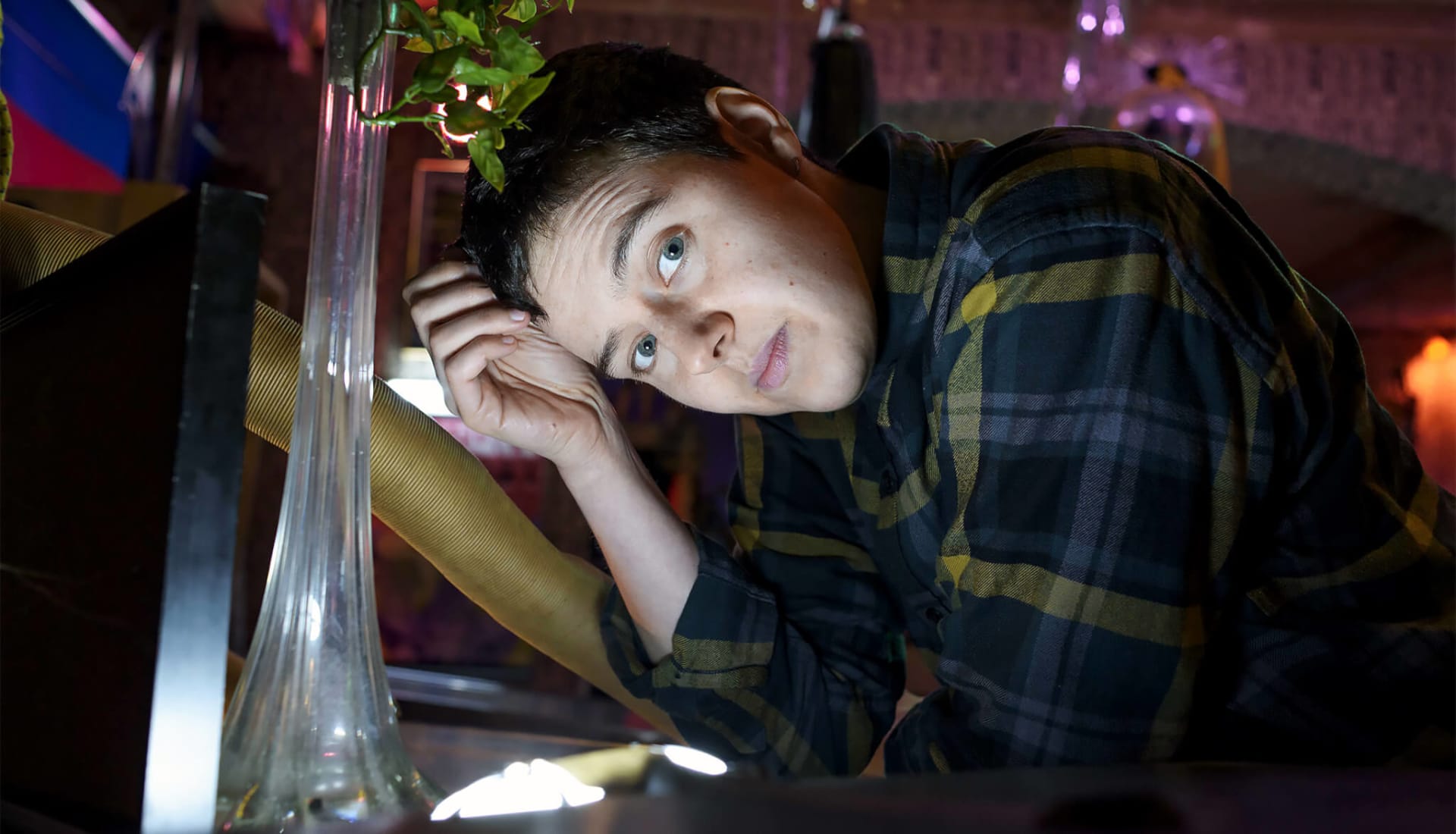
Meet Borusiade, The Producer Leading Romania’s Experimental Music Revolution
Miruna Boruzescu (a.k.a. Borusiade) isn’t exactly a typical Romanian DJ. If she were, her sound might be closer to the Bucharest-based minimal techno of Rhadoo, Petre Inspirescu and other DJs tied to the [ar:pia:r] label crew. Instead, her sound evokes a different and darker undercurrent that’s earned her an affiliation with Matias Aguayo’s oddball Cómeme label, which will release her debut LP, A Body, on March 9.
“Most of the world is dominated by straight white men,” says Boruzescu over a glass of ginger ale at the Neukölln dive Sameheads. “But Romania has historically been more like that.” Rominimal flag bearers as well as tech-house weekenders like Sunwaves have come to define the country’s underground sound, a trend that stands in opposition to the alternative DIY community that has begun flourishing there in the last few years.
“There were some opportunities in Bucharest when I was just starting out in music, but I played some pretty weird places,” she remembers. “I was once booked at a big minimal techno club, and I played half an hour there before they asked me kindly to leave, because it wasn’t the kind of music they were expecting.” What Boruzescu considers to be “her scene” didn’t begin to appear until the tail end of her life in the capital city nearly ten years ago. Since her arrival in Berlin, the seeds of experimentalism began to be planted by Bucharest festival Rokolectiv, which we first covered in an interview with its founder, Cosmin Tapu, two years ago.

“In Bucharest, mainstream music is either tech-house or…how should I call it…’post-minimal house’ stuff,” Tapu told us. “That’s been big in Romania for ten years or so, and it never dies.” Rokolectiv’s commitment to wild-eyed alternativism is, in many ways, a reaction to the homogenizing effects of Rominimal and its surrounding culture. Boruzescu echoes that the annual event has helped to catalyze an interest in and act as an incubator for less conventional music. “In order for Rokolectiv to exist, it was necessary for an audience to be in place already to come and visit the festival, and the other way around—the festival created an audience, because more and more people gathered and became interested. It was a major stepping stone for the city.”
In the festival’s wake, the torch has been passed from pioneers like Boruzescu herself to a younger generation of predominantly female DJs championing a blend of ’80s-inspired krauty electronics and dark psychedelia. Among them are curators like Agnes Aves, Admina, Alexa Alaska and Chlorys, some of whom we profiled in our guide to Bucharest’s burgeoning underground scene. Boruzescu expresses sheepish humility when she concedes that many of these young artists have called her a direct musical influence.
Borusiade’s music, then, is significant in a broader sense than in its thoughtful narrative and beautiful compositional style alone; it’s representative of the growth of a larger underground movement and a new guard of incisive curators at the helm of a sludgy, wave-indebted style. Her new release comes on the heels of her successful online radio show, “The Dreamcatcher“—also hosted by the Cómeme imprint—which slowly established her sonic palette and penchant for dark disco, John Carpenter-esque arpeggios and EBM-hued drum kits. A Body features a similar aesthetic as her previous work, but the album as a whole is powered by an invigorating energy that Boruzescu claims to be a “step into the light.” Its single “Silent”, which was released in October of last year, is a deeply hypnotizing and rhythmical dance floor cut. Its remix by the Bucharest outfit Khidja—a similarly skillful production duo inhabiting the same realm of motorik kosmische musik—is perhaps an even more accurate depiction of some of the groovier electro-beholden sounds that have come to define this emergent style.
Of the album’s underlying thematic concept, which follows a dreamlike series of transformations in both the musical arrangements and the song titles themselves, Boruzescu points to her past life as a film director. “A Body became my personal diary,” she says, “where each musical element became a soundtrack for something in my life. I like this kind of narrative epic storytelling.” She sings over almost every track, her distant, shrouded voice creating meanings in mantra-like repetitions that call upon altered states of consciousness. Aside from A Body‘s single, the tracks “An Aquarian Feeling” and “Dormant” are perhaps the most noteworthy on the album, evoking slo-mo hybrids of new wave and industrial with more contemplative melodic arcs.

Her onslaught of recent productions and the release of her new album have placed Borusiade firmly on the international stage. She’s already been announced as a headlining artist at Jennifer Cardini’s specially curated stage at Lyon’s Nuits Sonores festival in May, and she’s preparing a live set to be performed as an ongoing series in the months to follow. “I already have quite a few releases lined up for this year,” she says while still keeping a tight lid on details. If Borusiade’s accelerating success is any barometer of changes to come, then we can expect a continuing paradigm shift in Romania’s musical trends and an increasing presence of the country’s rising talent, and especially its women. For now, Boruzescu hopes to encourage the younger generation to strengthen its voice by generating more music of its own. “I’d be happy to hear more,” she says. “But at least there are a lot more experimentally affiliated arts happening in Bucharest in general. Even if people are landing there accidentally, for now. It’s good, because it’s happening.”
A Body will be released on Cómeme Records on Friday, March 9. To download the LP and buy the vinyl, click here.
Read more: After the fire—how the Colectiv tragedy changed Bucharest
See more photos from Elizabeth Claire Herring on Instagram.
Published March 06, 2018.
